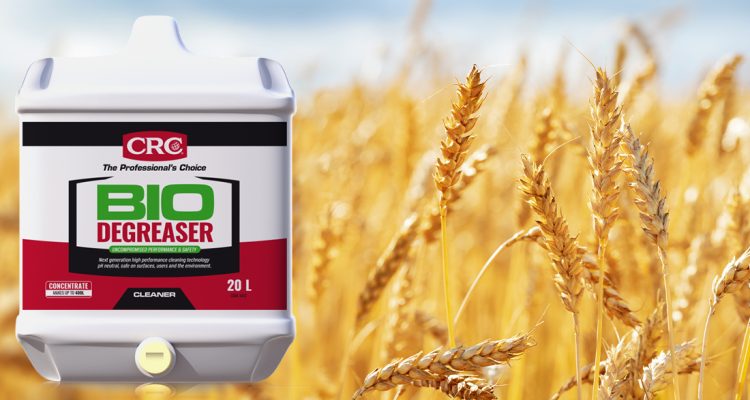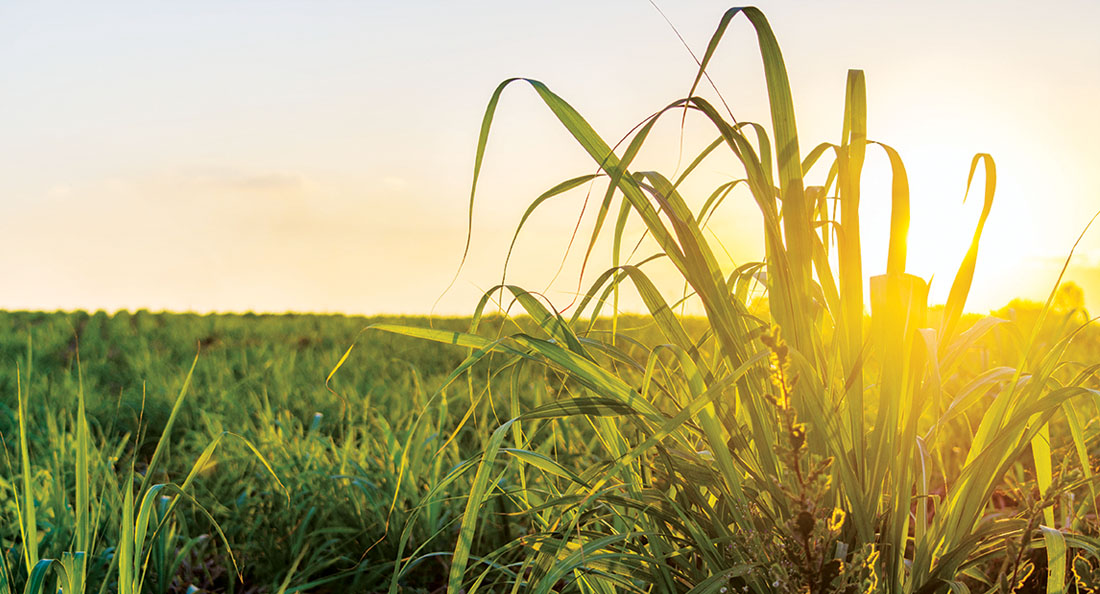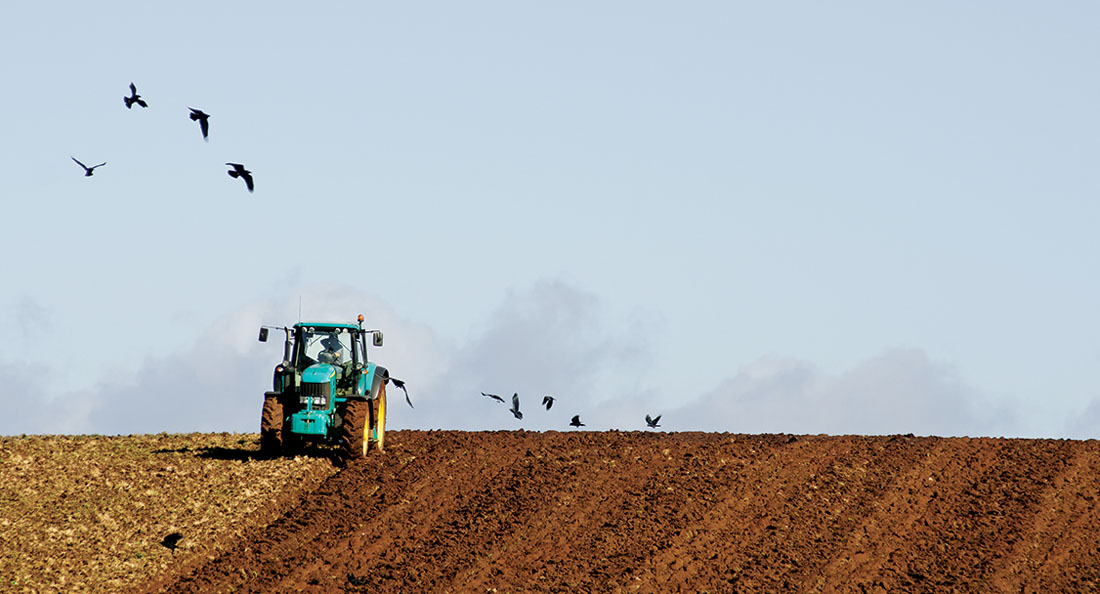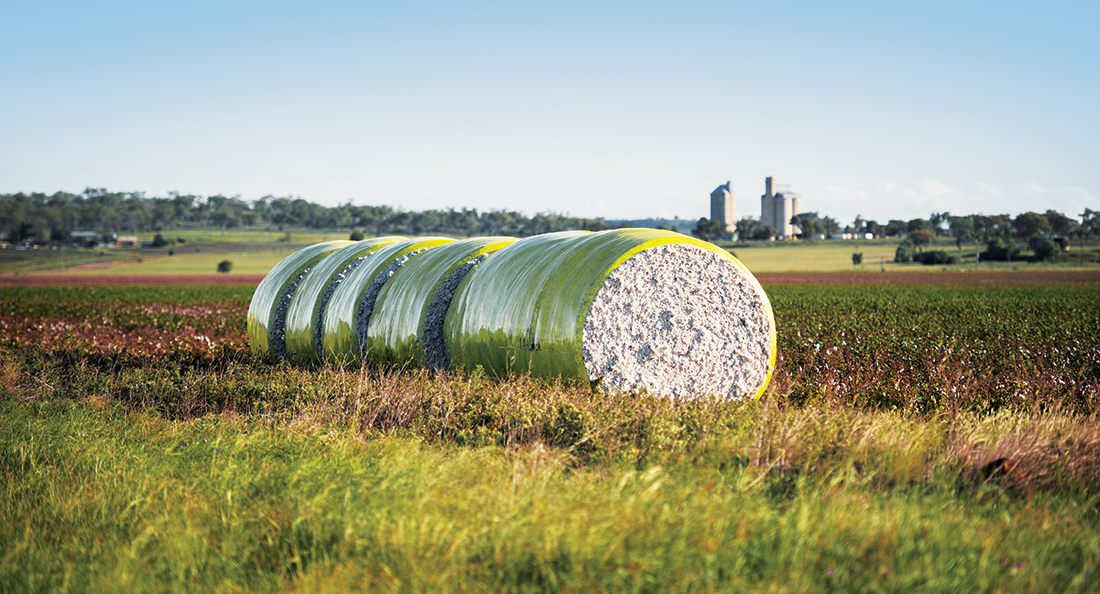The use of chemical solvents in heavy industries – like agriculture – can have detrimental effects on the surrounding natural environment. As land stewardship becomes a more pressing issue Australia-wide, farmers are opting for innovative asset maintenance solutions that are safer for both the earth and the health of workers.
“Equipment like compressors and engines can generate a lot of toxicity, especially through whatever product is used during the cleaning process,” says Melanie Mangos, Head of Industrial Sales at CRC Industries Australia. “On farmland, chemical solvents often get rinsed directly into the soil or local waterways, threatening the local ecosystem.”
What’s more, long-term exposure to agrichemicals can eventuate in severe health risks, including lung, liver, and kidney disease.1 The challenge remains for farmers who require a robust, efficient degreaser for ongoing maintenance during the harvest season, but want to mitigate these hazards.
“There has been a lot of resistance over the past decade around bio-cleaners, because many people assume they won’t be as tough on breaking down grease,” says Melanie. “It is CRC’s aim to disprove that with the Bio Degreaser. Its advanced formula has been tried and tested in the harshest conditions, and it performs just as well – if not better – than chemical solvents in agricultural settings.”
CRC’s innovative Bio Degreaser is water soluble, and breaks down naturally, offering a tough cleaning solution that doesn’t harm the environment. While washdowns with harsh solvents will often degrade the surface of the equipment over time, this cleaner is non-abrasive and non-corrosive, protecting the material for peak performance throughout the season’s full cycle.
“Even though it has grease in the name, this product has diverse capability to remove most kinds of tough residue,” Melanie points out. “Wheat, when it is being harvested, is gelatinous and tends to stick to machinery. It’s almost like a very tough glue with the husks through it, and proves difficult to clean off regularly without a strong enough cleaner. When Bio Degreaser is used, it almost has a melting effect, and can be rinsed off without arduous manual labour.”
She elaborates that ease of application is at the forefront of the product’s packaging design, keeping efficiency in mind for busy operators and maintenance teams.
“It’s available in a 20-litre concentrate, which can be diluted and used in a tub or backpack sprayer for tractor parts or larger equipment. Then there is also a 750-millilitre spray bottle, ideal for smaller parts and bearings. There is no scrubbing involved – you simply spray it on, wait for a bit, then rinse it straight off. It mitigates the need for haulage contracts, as it’s completely harmless to soil and waterways.”
Steve Keown, National Product Manager for Lubricants at Motion Australia, outlines additional benefits to using a PH-neutral, water-based product, limiting multiple areas of risk when it comes to protecting equipment, land and people.
“Traditional degreaser products are often in excess of 60 per cent kerosene” he points out. “Not only is this a runoff treatment issue, but it is also a highly flammable ignition source sitting on expensive tractor equipment. Cleaners that aren’t kerosene or diesel based have high amounts of phosphorous, which compromises soil if it comes into contact.”
According to Steve, CRC and Motion Australia have been working together to distribute samples and run on-site product trials for agricultural customers. Since the Bio Degreaser’s launch in 2019, it has garnered significant interest as a ‘cleaner, greener solution’ that doesn’t compromise on performance.
“A lot of customers are now ordering it in much larger quantities, because they have seen for themselves how effective it is on even the toughest contaminants,” he concludes. “I can say with confidence that Australian farmers stand to benefit from investigating sustainable practice, as land care and the protection of biodiversity will be a national priority going forward.”
References:
- https://www.betterhealth.vic.gov.au/health/healthyliving/farm-safety-and-handling-agrichemicals




